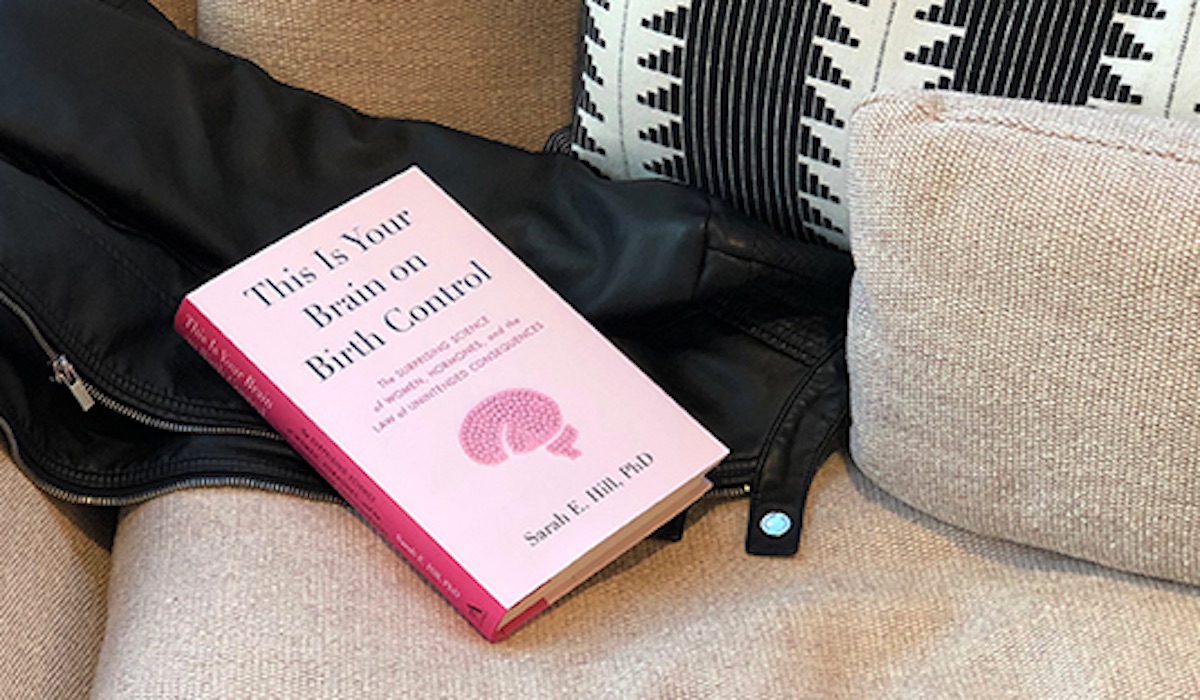This Is Your Brain on Birth Control Is an Astonishing Must-Read


Sarah E. Hill, PhD, wants everyone who takes birth control—and those who do not—to be better educated about their minds and bodies. Hill knows that the pill has revolutionized society, but she also wants us well-informed about how the pill changes those who take it.
Subtitled “The Surprising Science of Women, Hormones, and the Law of Unintended Consequences,” This Is Your Brain on Birth Control is truly eye-opening. While we sometimes get warned about side effects and hear anecdotes about taking hormonal birth control, the broad range of what’s happening to our bodies on the pill is vital to understand.
Many of us start taking birth control for a range of conditions, not limited to preventing pregnancy, and we can be unaware that “Sex hormones impact the activities of billions of cells in the body at once, many of which are in the brain. In turn, the pill affects sex, hunger, friendships, aggression, learning, and more.”
We appreciate that Dr. Hill is laying out the science without judgment so that everyone can consume this essential information:
She recognizes how instrumental the pill has been in helping women advance in the workplace and society. Dr. Sarah E. Hill credits the pill to her own ability to achieve a doctorate and career success. In turn, she’s not anti-birth control. She’s pro-woman. In THIS IS YOUR BRAIN ON BIRTH CONTROL, Dr. Hill compiles her extensive research in an accessible, witty, fun-to-read book that finally gives women the information they need to think critically about the birth control pill.
Dr. Sarah E. Hill explains that being on the pill impacts a woman’s:
- Choice of partner. Estrogen leads to a heightened preference for a sexy man. Sexy man = good genes = healthy children, but the pill suppresses ovulation, which means it also suppresses estrogen. This can cause a woman on the pill to choose a partner for reasons other than physical attraction (like financial fitness). That may be a plus, but it also means there’s a risk that going off the pill = that woman discovering that she is not attracted to the person she chose while on it.
- Scent and sexual appeal. A woman smells better and sexier to a man at high fertility compared to low fertility. Several studies have now found that a woman’s natural body scents collected at high fertility are rated by men as being more desirable and pleasant than scents collected at low fertility. Women are also rated as sexier and more attractive at high fertility compared to low. These sexiness boosts do not apply to women on the pill.
- Sexual desire. Women have lower sexual desire when they take hormonal contraception. In turn, they have sex less frequently and are more likely to experience discomfort. This may result from the suppression of ovulation and its accompanying surge of hormones.
- Stress response. On the pill, women have a blunted free cortisol response to stress, which sounds great (no stress, hooray!), but it can have negative implications on learning and memory. With a weakened stress response, women are at greater risk of developing autoimmune conditions. In fact, 78% of people suffering from autoimmune diseases are women.
- Mental health. The pill affects many neurotransmitters, particularly those associated with reward and pleasure, in ways that can mean trouble for mental health. On a hormonal contraceptive, a woman is twice as likely to have attempted suicide as a woman who was not on a hormonal contraceptive.
- Level of achievement. Statistically, when a woman is on the pill, she attains higher education and fulfillment in fields previously closed to her (like law, medicine, science, government, and business). This shift may even explain the decreased achievement levels in men.
- Believe it or not, this is just a preview of the unexplained consequences of taking the pill that Dr. Sarah E. Hill explores in her book.
It’s fantastic that unlike many people’s experiences with a healthcare provider, This Is Your Brain on Birth Control really places the reader in a position of power, empowering them with the knowledge they need to make their own decisions. Even more vitally, the book is a call to arms:
It also opens their eyes to the ways that they have been routinely excluded from science and serves as a rallying cry for better and more inclusive research. This crucial book launches an honest dialogue between women and their mothers, sisters, girlfriends, daughters, doctors, or partners about how the pill affects who they are and who they become.
What’s happening to your brain and body on hormonal birth control? It’s time to find out.
Want more stories like this? Become a subscriber and support the site!
—The Mary Sue has a strict comment policy that forbids, but is not limited to, personal insults toward anyone, hate speech, and trolling.—
Have a tip we should know? [email protected]